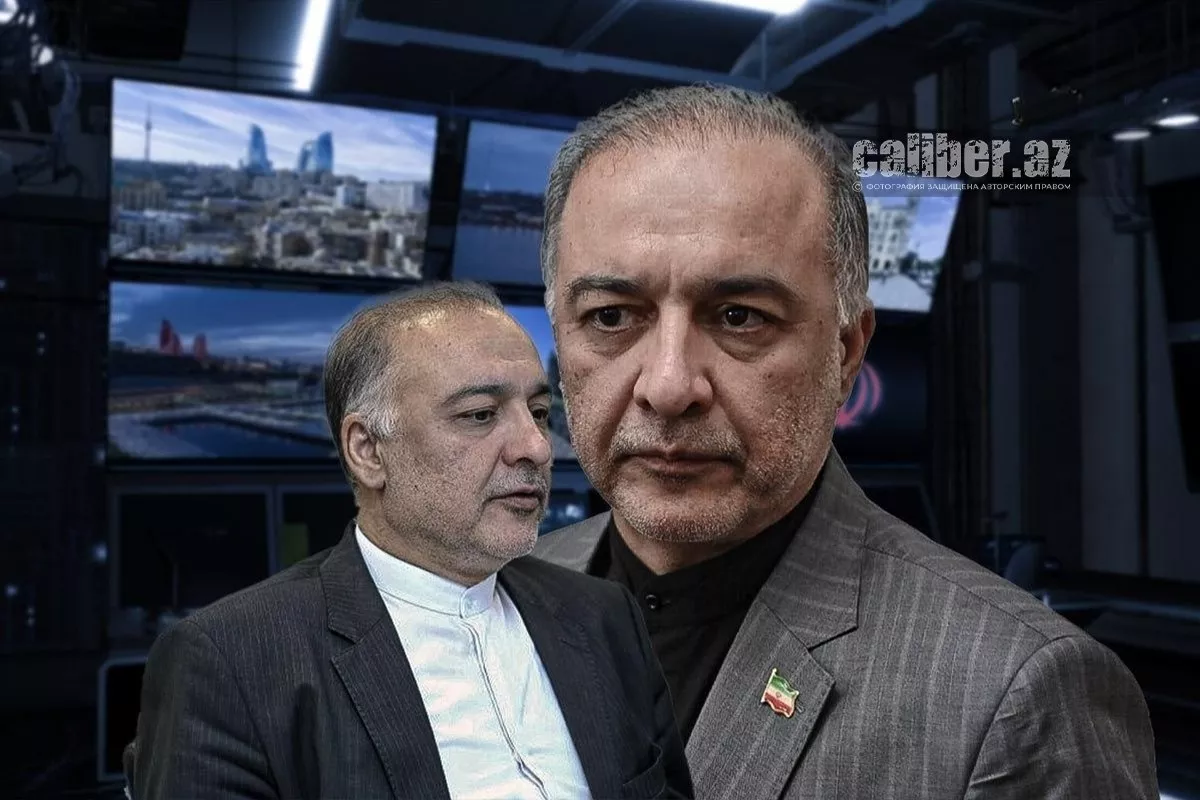A coarse-grained ambassador Iran’s provocative diplomat departs Armenia
The scandalously known Iranian ambassador to Armenia, Mehdi Sobhani, has concluded his diplomatic mission in the country. On this occasion, he was received by Armenian Foreign Minister Ararat Mirzoyan, who noted that “despite a difficult period, the two countries managed not only to overcome challenges but also to achieve tangible results in their relations.” For his significant personal contribution to deepening cooperation and strengthening friendly Armenian-Iranian ties, Mirzoyan presented Sobhani with the Order of Friendship, awarded to him by a decree of the President of Armenia, and wished him success in his future endeavours.
Nothing is surprising or objectionable in the actions and statements of the head of Armenian diplomacy. This is standard practice. However, we could not refrain from this introduction to savour the departure from the Armenian diplomatic arena of, we dare say, a provocateur.
Sobhani was closely linked to the Islamic Revolutionary Guard Corps (IRGC) and, before he was appointed ambassador to Armenia, served as Iran’s diplomatic representative in Syria. Considering the role Tehran played in that Arab country, it was clear from the outset that Sobhani had been sent to the South Caucasus on a hawkish mission—to actively hinder the establishment of peace between Armenia and Azerbaijan.
He began his tenure in July 2023, during a period when the crisis in Azerbaijan-Iran relations was gradually escalating—six months before the terrorist attack on the Azerbaijani embassy in Tehran, which resulted in the death of one of its staff members.
Sobhani immediately started issuing threats against Azerbaijan, with the central theme of his statements revolving around the Zangezur Corridor. Some of his remarks included:
-
“Nothing can be resolved by force. There will be no ‘Zangezur Corridor.’”
-
“Our red lines have not changed; we are against altering internationally recognised borders.”
-
“We are categorically opposed to any geopolitical changes and to changes in internationally recognised borders.”
-
“We do not want to use this word. We agree to the opening of communications only if it happens based on the territorial integrity and sovereignty of the Republic of Armenia. Moreover, we are against anything that has a corridor logic. We are against any geopolitical changes.”
Does anyone even know what “corridor logic” means? It seems like the term was invented in Iran just so it could be easily discarded later—which, ultimately, is exactly what happened, as will be discussed below.

Sobhani also actively met with Armenian politicians from various camps, promoting the idea that Iran is allegedly the sole guarantor of Armenia’s security—contrary to both the West and Russia. He pursued this in the best traditions of backroom diplomacy, bordering on conspiratorial tactics.
The wayward ambassador was also remembered for his provocative statements about the alleged forced departure of Armenians from the Karabakh region of Azerbaijan and even about the “right of peoples to self-determination.”
Finally, another bout of hostility struck the ambassador after Israel’s summer airstrikes on Iran. Initially, he claimed that, according to intelligence reports, Azerbaijani territory had allegedly been used for attacks on Iran. However, a few days later, he was forced to admit that Tehran had no evidence of Azerbaijan’s involvement in Israel’s actions.
The same fate befell the “corridor” rhetoric mentioned above. After Pashinyan signed the Joint Declaration endorsing the “Trump Route,” completely disregarding the so-called Iranian red lines, Sobhani commented that the Trump Route was acceptable precisely because it was not a corridor.
In any case, Sobhani’s departure is highly symbolic—keeping an ambassador in Armenia who puffs up his chest and spews vitriol against Azerbaijan is no longer convenient for Tehran. Moreover, the agreements between Baku and Yerevan do not create a favourable environment for hostility in the South Caucasus.
The long saga of Iranian foreign policy based on proxy expansion is collapsing, and Tehran now faces the task of developing a new doctrine for its geopolitical existence. The wisest course would be to prioritise trust-based relations with its neighbours. In this regard, Azerbaijan is a reliable partner. However, our country should not be tested—resistance will certainly be met.
So what should the hot-headed diplomat do now? The answer is simple: to use a football metaphor, hang up his boots. There is no place for him in the next match.








